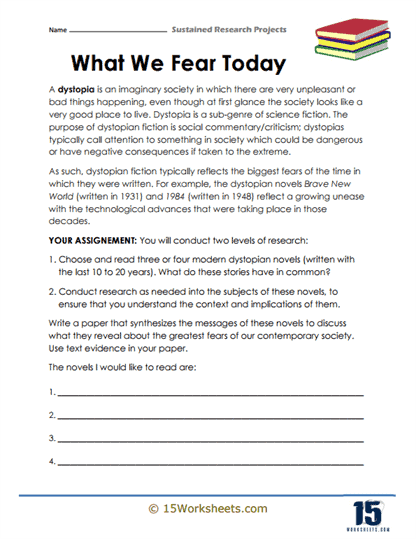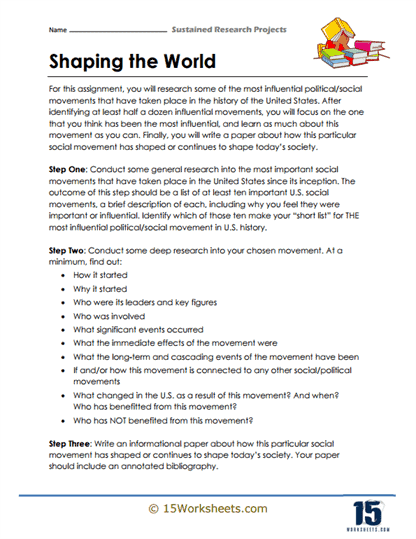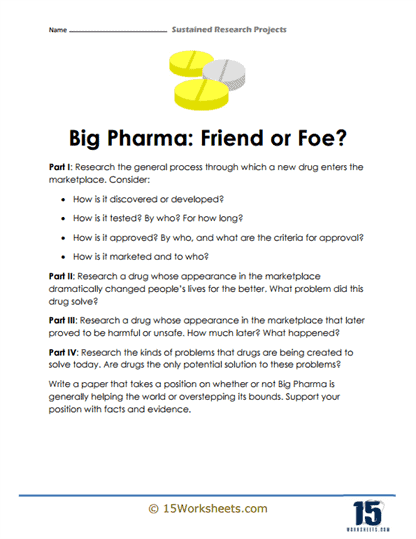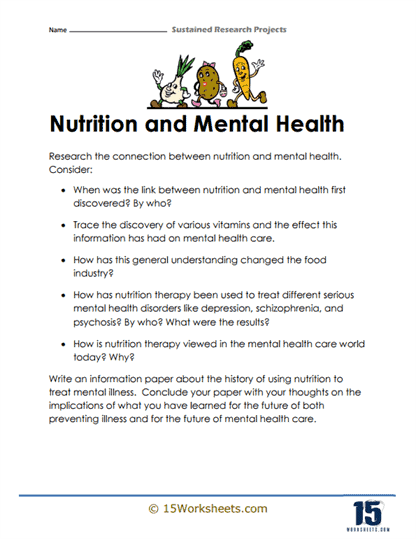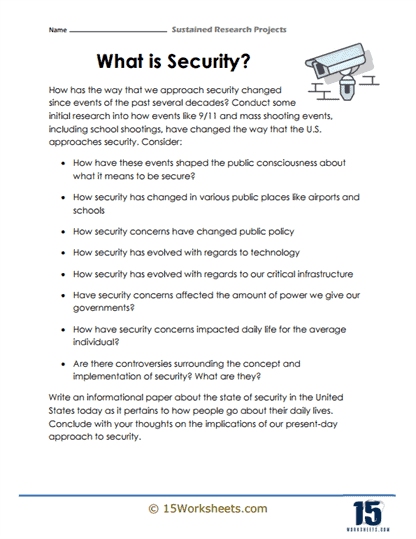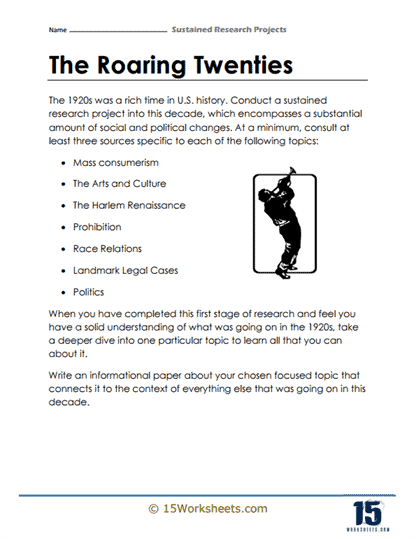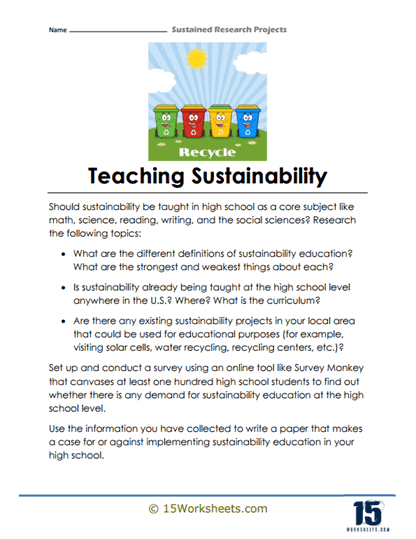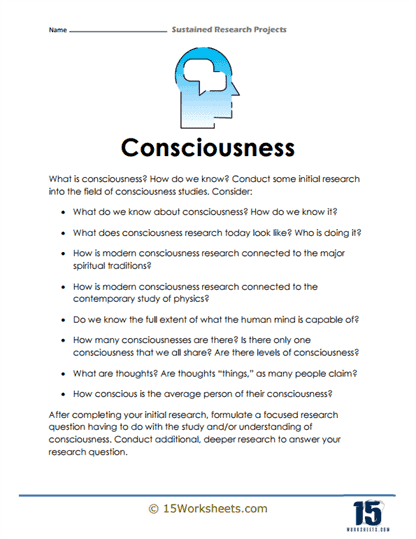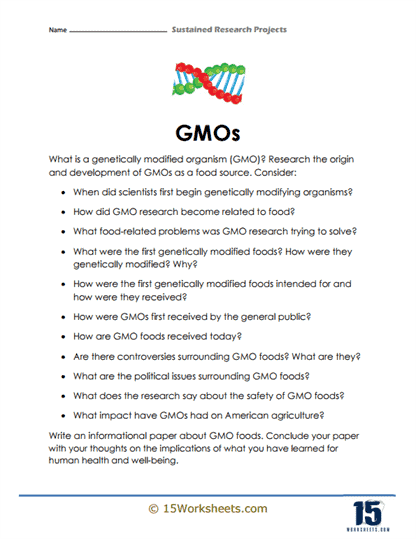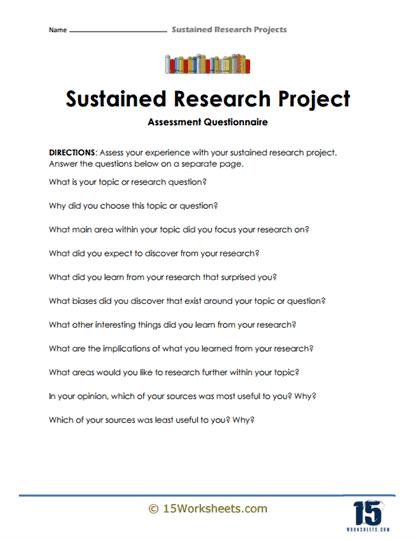Sustained Research Worksheets
All About These 15 Worksheets
This series of 15 worksheets offers a comprehensive and engaging resource designed to foster a deep understanding of complex topics through sustained research. These meticulously crafted worksheets empower students to delve into a chosen subject, encouraging them to explore, analyze, and synthesize information to become experts in their field of study.
The writing prompts provide a structured framework to guide students through a thorough and immersive research process. With a focus on depth and breadth of knowledge, they challenge students to dig deeper, think critically, and develop well-rounded perspectives on their chosen topic. Through these worksheets, students will:
- Develop project management skills, ensuring a systematic and efficient research process;
- Explore a variety of sources, including scholarly articles, books, interviews, and empirical data, to gather relevant and reliable information;
- Analyze and synthesize the information they gather, identifying patterns, connections, and contradictions;
- Practice organizing their research findings into well-structured essays, papers, reports, or presentations;
- And refine their ability to articulate complex ideas clearly and effectively, catering to different audiences and purposes.
This series instills in students a deep appreciation for research as a transformative learning experience. By immersing themselves in a sustained exploration of their chosen topic, students develop critical thinking, information literacy, and communication skills. They also cultivate perseverance, resilience, and self-motivation as they navigate the challenges and rewards of in-depth research.
Whether used in classrooms, research projects, or as part of independent study, these Sustained Research worksheets provide a rich and immersive learning experience. In summary, these worksheets empower students to become independent researchers, fostering a love for knowledge and equipping them with essential skills for academic and professional success.
How to Make your Research More Sustainable
To ensure that your voice is heard and plays an instrumental role in shaping the future, it is important to make your research more sustainable.
Research usually uses loads of resources, and the researcher has to spend valuable time and effort compiling and conducting the research. However, if it is not sustainable, it will fail to create an impact on your audience, which means that all your effort will also get wasted.
The idea of sustainable research is that the needs of the future generation should not be compromised to meet the needs of your own research. After all, the natural resources on our planet are rare, and we cannot afford to waste the declining economic and social resources either.
1. Feel Free to Cherry-Pick
Cherry-picking refers to the practice of using items, opportunities, or ideas that are most profitable. This means that when you conduct your research, it is okay to choose the best kind of facts and research article available.
Depending on the kind of research you are conducting and your interests, you might find it easier to implement some rules than others.
2. Ensure that You are Well-Informed
When conducting research, you will come across hundreds of questions that are difficult to answer. However, you must take into account all factors. If you want your research to be sustainable, you must look at the picture from all angles, define every situation to the reader, and provide a list of pros and cons.
You want your research to cover all aspects of the story rather than focusing on what you most agree with. Remember, facts are not the same as opinions. Your research should be loaded with facts that are also cited so that your audience can make informed decisions.
3. Don’t Be Afraid to Work Collectively
When conducting research, you might come across limited resources. This will have a huge impact on your research, especially if you are unable to use these resources properly to evaluate your research.
But you can share protocols, research material, and results with those researching the same topic as you. This will contribute to making your research more sustainable while ensuring that you do not end up wasting resources. You might also come across ideas that you did not consider before. After all, there is nothing better than learning from those around you.
4. Evaluate the Impact of Your Research
Like all other activities that human beings are a part of, research also has an impact on the environment. Before you try to make your research sustainable, it is important that you first question how your research will impact the environment, as well as your audience.
Is your research important? Will it bring about any changes? How will it impact those around you? Will it change the world at some point?
All these are important questions to ask, especially when trying to make your research sustainable.
5. Raise Awareness
Sustainable research can be obtained by sustainable actions. These can create an impact on an individual as well as a collective level. The strength of the impact depends on the amount of support your research garners amongst your audience.
Hence, if you want to create sustainable research that will change the world, you need to ensure that it raises awareness that will gain the support of your readers. After all, your research needs to have a goal. Even if it is done merely as a public service, it needs to have a message so people can act upon it.

